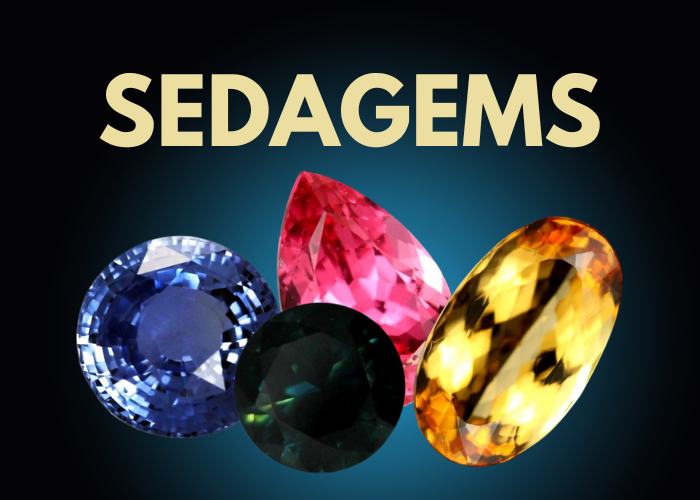ANCIENT GLASS BEAD -AFGANISTAN- FACE DRILLED 4.15CTS MX 4761
- UGS
- Dimensions (mm)
- 18.000 x 13.000 x 2.000mm
- Poids (cts)
- Couleurs
-
ANCIENT ROMAN GLASS
This is a stunning glass bead specimen which is between 700 to 3000 years old.Thousands of years ago, the Romans came to Afghanistan to trade glass and teach the art of glass making. Buried for centuries, the discarded chunks had been thrown into a pit for recycling, a common practice in ancient times, but instead were forgotten.It was just recently re found.This piece we selected for its stunning colour-ideal as a centre piece in a necklace or kept a as a specimen.It should not be used where there is excessive rubbing.
Drilled in the face so it can be thredded on a necklace
Weight 4.15 cts app
Size 18 x 13 x 2 mm app
COLOUR-where does it come from.?
The brillant colours come from a chemical reaction from the glass when left in the soil for ions.We have a similar result in the opal fields in Lightning ridge Australia as when a bottle is left for years there are some faint opal like colours appear-but it is nothing compared to the brillant colours from this ancient glass.The sands used to manufacture ancient glass contained manganese and iron ore impurities which over centuries gives unique colours to the glass when left in the ground. The sands also contained sulphurs and glass blowers added minerals to colour enhance these glass vessels.They added red by mixing copper, and lead.
- UGS
- Dimensions (mm)
- 18.000 x 13.000 x 2.000 mm
- Poids (cts)
- Couleurs
-
ANCIENT ROMAN GLASS
This is a stunning glass bead specimen which is between 700 to 3000 years old.Thousands of years ago, the Romans came to Afghanistan to trade glass and teach the art of glass making. Buried for centuries, the discarded chunks had been thrown into a pit for recycling, a common practice in ancient times, but instead were forgotten.It was just recently re found.This piece we selected for its stunning colour-ideal as a centre piece in a necklace or kept a as a specimen.It should not be used where there is excessive rubbing.
Drilled in the face so it can be thredded on a necklace
Weight 4.15 cts app
Size 18 x 13 x 2 mm app
COLOUR-where does it come from.?
The brillant colours come from a chemical reaction from the glass when left in the soil for ions.We have a similar result in the opal fields in Lightning ridge Australia as when a bottle is left for years there are some faint opal like colours appear-but it is nothing compared to the brillant colours from this ancient glass.The sands used to manufacture ancient glass contained manganese and iron ore impurities which over centuries gives unique colours to the glass when left in the ground. The sands also contained sulphurs and glass blowers added minerals to colour enhance these glass vessels.They added red by mixing copper, and lead.
| Fournisseur d'expédition | Expédition vers Australia | Expédition dans le reste du monde |
|---|---|---|
| FedEx | $12.00 / 3 | $39.00 / 10 |
|
Australia
FedEx bénéficie d'une remise de $12.00 sur les commandes contenant 2 ou plus d'articles
Reste du monde
FedEx bénéficie d'une remise de $39.00 sur les commandes contenant 2 ou plus d'articles
|
||
| Registered Shipping | $9.00 / 7 | $16.00 / 21 |
|
Australia
Registered Shipping bénéficie d'une remise de $9.00 sur les commandes contenant 2 ou plus d'articles
Reste du monde
Registered Shipping bénéficie d'une remise de $16.00 sur les commandes contenant 2 ou plus d'articles
|
||

-
 Positif
PositifVery special item, rare. Thanks an Happy New Year from Germany.
-
 Positif
PositifBeautiful stone, perfect packaging, fast shipment, recommendable seller.
-
 Positif
PositifIncredible stone, never seen before. Thank you from Germany. Will order again Dr. Rainer (medical doctor from Duisburg/Germany)
-
 Positif
PositifNice stone, perfect packaging, fast shipping, recommendable.
-
 Positif
PositifBeautiful small mini, thanks and a good and healthy 2025.





![44.45 CTS FIRE AGATE NATURAL SPECIMEN [MGW5613]](https://liveplatforms-production.b-cdn.net/tenants/gr/uploads/images/1135000-1139999/1137304/5e55d98bec082.jpg?width=480&aspect_ratio=1001%3A1000)
![173.20 CTS AMETHYST CHOCOLATE SPECIMEN [MGW4114]](https://liveplatforms-production.b-cdn.net/tenants/gr/uploads/images/395000-399999/398510/52cf8c692d487.JPG?width=480&aspect_ratio=1001%3A1000)
![66 CTS TOURMALINE MUSHROOM SPECIMEN BURMA [MGW2471]](https://liveplatforms-production.b-cdn.net/tenants/gr/uploads/images/305000-309999/306719/306719_1351580779.jpg?width=480&aspect_ratio=1001%3A1000)
![35.50 CTS LEPIDOLITE SPECIMEN FROM BRAZIL - [MGW2097]](https://liveplatforms-production.b-cdn.net/tenants/gr/uploads/images/280000-284999/281088/281088_1341207258.jpg?width=480&aspect_ratio=1001%3A1000)






